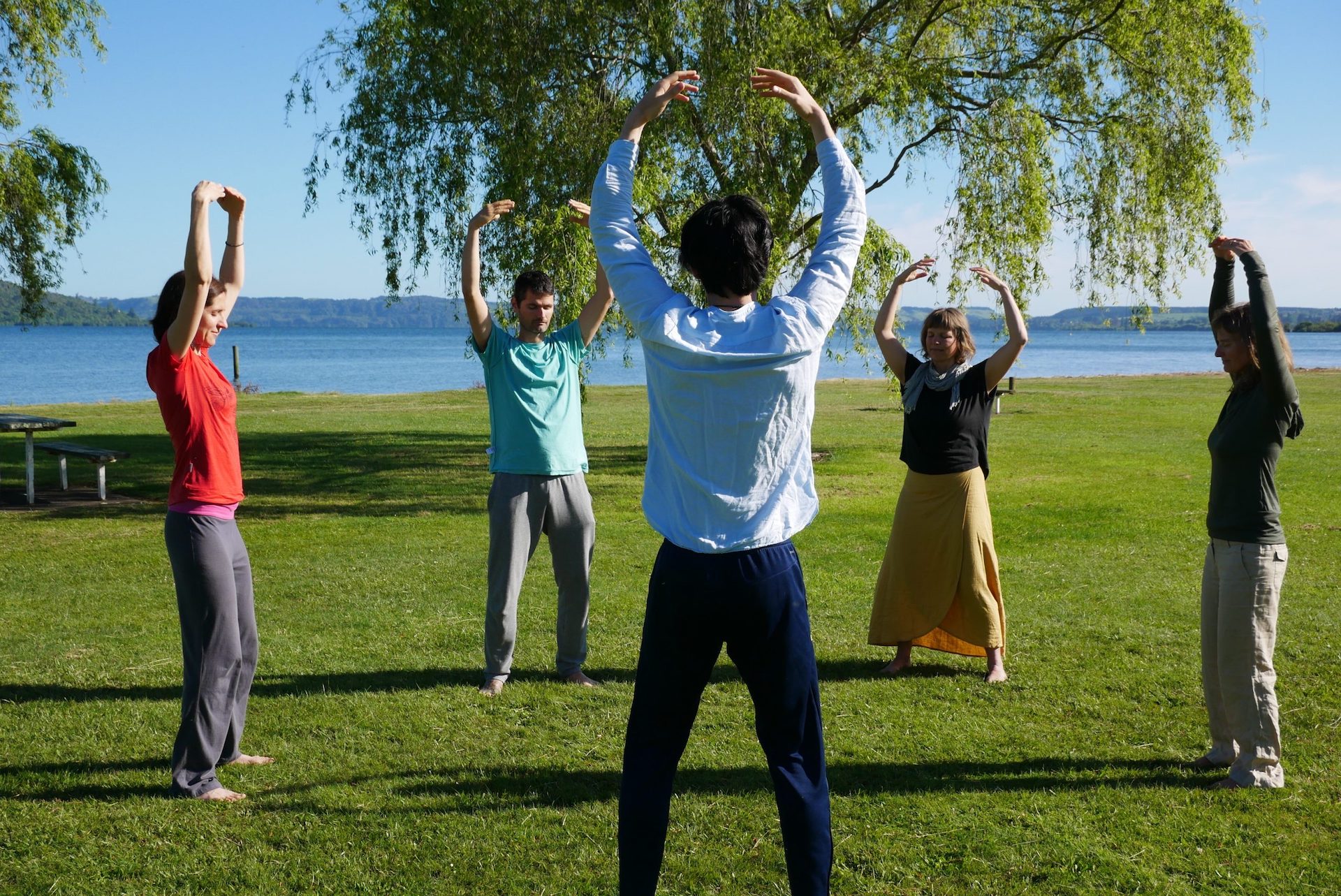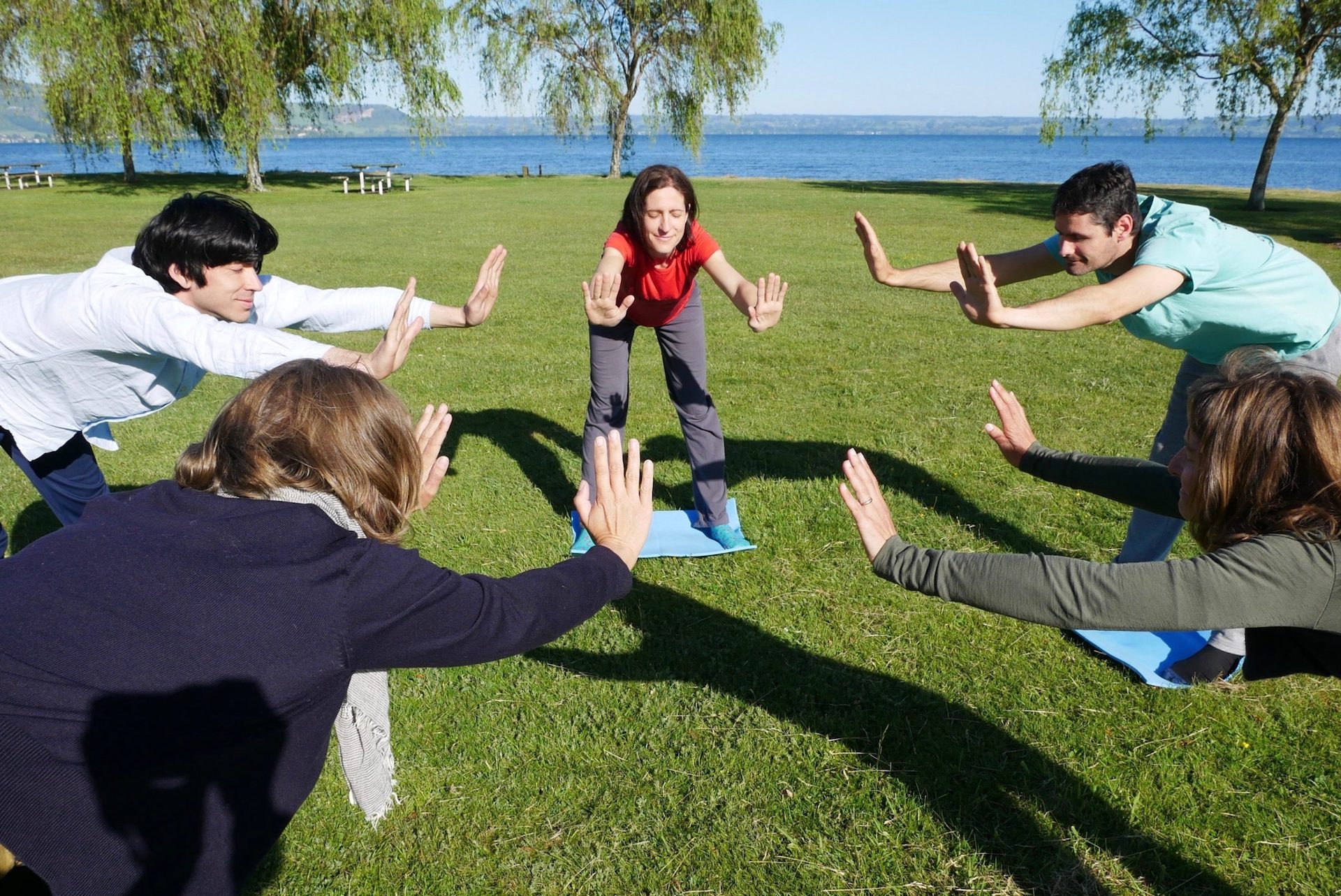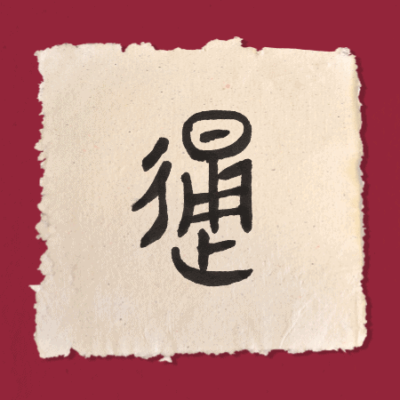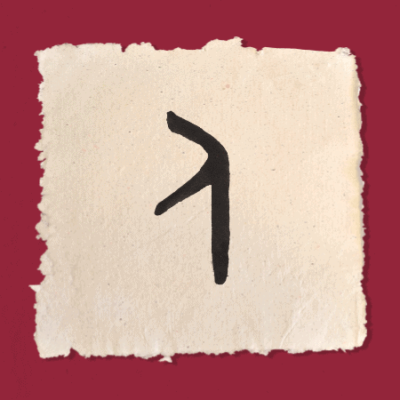The Best Qigong Practices
What are the best Qigong Practices? Before finding Yuan Qigong I tried other Qigong styles and practices. The first one I tried back in the 1970’s, was offered by a young man who was a friend of a friend of a friend. I was expecting to feel the calm and harmony I’d experienced while observing people practicing Qigong in the parks in Hong Kong.
While we did eventually learn the movements of the form, no theory was taught. Without the emphasis on Qi, the practice was essentially a dance routine. There was none of that mesmerizing sense of calm I’d felt when watching morning Qigong practices in the Orient.
The instructor of another style I tried, advised the class it would take over a year to learn the entire sequence of movements because they were so complex. Knowing I would need to learn the entire sequence before experiencing any benefits, I began looking for another teacher.
Why Yuan Qigong is so successful
When I finally found Yuan Qigong and began to learn the methods and practice them, I marveled at the difference in this experience from all the others. The feel of flow and connection was tangible as compared to the frustration I felt in learning the other styles. Its creator, Yuan Tze, reimagined the traditional forms of Qigong to suit modern life and adapted traditional movements, such as “cloud hands” and “pull the bowstring” to new formats that are highly effective.

Which is the best Qigong practice for you
One thing I eventually realized is that you need to consider carefully what you would like to get out of a Qigong practice. Is it better health? A sense of flow? Mental clarity? More relaxation? Once you’ve embarked on your practice, keep track of your progress to see if you are getting the benefits you want.
I also realized the best Qigong practice is the one you enjoy, do regularly and which provides results. In addition, a style of Qigong that has methods that integrate and build on each other is invaluable. The practices should suit what you need in the moment - ten minutes of supplementary exercises to get your Qi moving, a forty-minute practice to gather and refresh your Qi, or a lengthy meditation that opens your heart. Versatility is essential. As your practice evolves, what suits you today will also change and evolve.
How to enhance your Qigong practice
Let yourself be guided to a system that works for you and that gives you the opportunity to interact with teachers so that you can ask your questions and be encouraged about your progress. Meeting other practitioners and feeling like you are a part of a community provides a structure to support your efforts and the experiences of community members can inspire your efforts.

How to relax with Qigong
I also came to realize that Qigong, while it has movements, is not really exercise. Translated, Qigong means to gather and work with Qi or life force. If you approach your practice as an exercise, your chances of getting the benefits are minimal. This is because, unlike exercise, you must be in a good mental and emotional state for your Qigong practice to be effective. Serenity and well-being are characteristics of a good state. Plain old discipline, often used to power through an exercise routine, won’t be particularly helpful. A good state contributes more than 50% towards the effectiveness of a practice.
In a good state, we heal, both physically and emotionally because the harmony we are feeling facilitates the flow of our Qi. Learning how to relax and transition out of a negative mood is one of the best, most useful Qigong practices. You can practice it all day long, you just need to remember to do it.
Qigong for Beginners
If you are game to try the Yuan Qigong methods, start with the first two methods, Gathering Qi and Nourishing Qi. They will familiarize you with your Qi and the experience of moving your awareness from the external to the internal. They also provide the foundation on which the other methods build. And, most importantly, you will begin to notice when you are in a negative state and learn how to shift your awareness and recover your sense of well-being.


